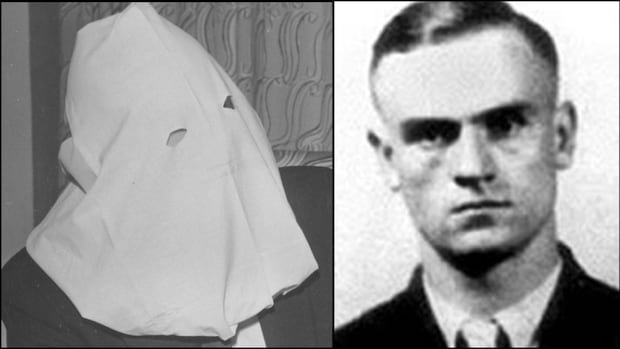For two decades, the burial place in a Mississauga, Ontario cemetery of a former Soviet code clerk who exposed a covert spy network in Canada remained unmarked. The grave of Igor Gouzenko and his wife Svetlana, devoid of a headstone due to fears of reprisal from Moscow, has been identified since 2002 by a significant Muskoka rock with a plaque inscribed with their names and the statement “We chose freedom for mankind.”
In a modest ceremony at the gravesite over the weekend, the 80th anniversary of Gouzenko’s defection from the Soviet Union was commemorated. In 1945, he clandestinely transported 109 classified documents out of the Ottawa embassy, delivering them to the Ottawa Journal newspaper. Termed the Gouzenko Affair, this defection is viewed by some historians as the commencement of the Cold War.
Evy Wilson, Gouzenko’s daughter, reflected from the Springcreek Cemetery in Mississauga nearly a century later, stating that her parents acted spontaneously with the sole intention of warning the West about the Soviet possession of nuclear weapons. She emphasized the significance of honoring the defection, especially amidst current tensions between Western nations and Russia due to the Ukraine conflict.
The stolen documents disclosed a Soviet spy ring operating in Canada, infiltrating critical government sectors, the Canadian military, and a laboratory with access to atomic bomb secrets. Wilson, born at Camp X near Oshawa, explained that the primary mission of the embassy in Ottawa was the development of the atomic bomb, highlighting the gravity of the espionage revelations in the purloined documents.
Gouzenko’s concern about retaliation persisted throughout his life, leading him to live anonymously near Toronto, concealing his identity during public appearances. Despite his death in 1982, a headstone was only installed after his wife’s interment beside him in 2001.
Don Mahar, who worked with the RCMP Security Service in Ottawa and handled the Gouzenko file, attended the ceremony in Mississauga. Mahar, reflecting on his counterintelligence career, acknowledged the importance of Gouzenko’s actions in exposing the Soviet threat during the Cold War era and reiterated that the Soviets were not the allies they were perceived to be.
The anniversary serves as a reminder of the ongoing threat posed by espionage and the critical role Gouzenko played in unveiling this danger. Wilson emphasized her parents’ conviction in their decision and the relevance of their actions in the current global climate characterized by nuclear proliferation.
